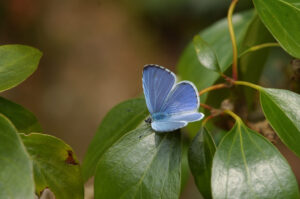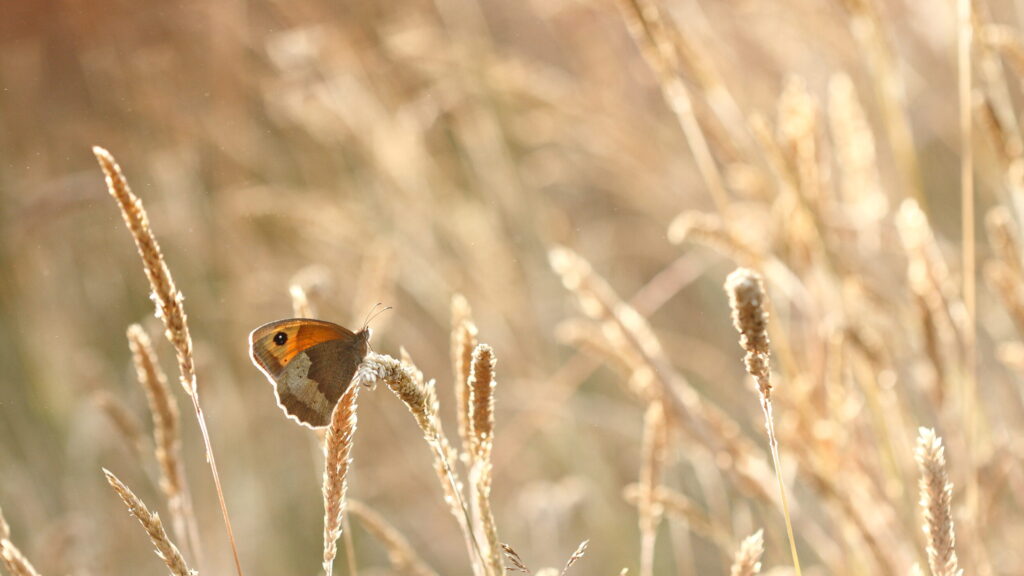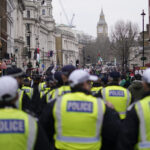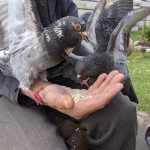The Butterfly Conservation Charity is handing in a letter to the Government at noon today with 42,000 signatures after declaring a national “butterfly emergency”.
The charity’s figures which state that 80% of butterflies have declined in the UK since the 1970s, with moth numbers dropping at least 33% in that same time.
Wildlife lovers at The Horniman Museum’s Butterfly House in London have voiced their concerns.
One woman, now in her fifties, remarked: “I think it’s quite shocking. There seemed to be a lot more butterflies around when I was growing up”.
A younger woman echoed the same sentiment, telling City News butterflies are a “big deal” in children’s books though you “never see” them much in real life.

The charity hopes the letter will urge the government to permanently ban the use of neonicotinoid pesticides.
The chemicals are currently banned in the UK but have been granted ’emergency use’ for the last four years.
Farmers have exercised this ’emergency use’ each year.
The Health and Safety Executive, Britain’s national regulator for workplace health and safety, told City News that for the past three years, they “advised” against emergency authorisation.
UPDATE: Defra respond – but nature needs action! 🚨🦋
A month has passed since a #ButterflyEmergency was declared, yet @DefraGovUK's response remains vague stating ‘the government is committed to changing existing policies to prevent the use of neonicotinoids.’ 1/4 pic.twitter.com/zBkiVFYvHU
— Butterfly Conservation 🦋 (@savebutterflies) October 23, 2024
Gideon Henderson, Chief Scientific Advisor at T(t)he Department for Environment, Food and Rural Affairs, has acknowledged there is “clear and abundant” evidence that neonicotinoids are “harmful” to wildlife.
Labour pledged to ban all neonicotinoids in their general election manifesto but the ban is yet to come into effect. City News contacted DEFRA who declined to be interviewed.
Study shows #neonicotinoids are harmful to birds on all fronts…
And in their General Election manifesto, @UKLabour
promised to ban them permanently once and for all.That ban can't come soon enough…https://t.co/Ob1CC0mfvD
— Craig Bennett (@CraigBennett3) October 15, 2024
The National Farmers Union has said it is “disappointing” that the finger of blame has been pointed at the use of pesticides. Not using the chemical means sugar beet is “threatened” by Virus Yellows disease.
A sugar beet farmer, who wishes to remain anonymous, told City News how the climate forces him to use neonicotinoids in small doses.
“If the weather pattern is such that aphid populations are likely to be high, then the risk to the crop is much higher, therefore the government will provide conditional use of Neonicotinoids.”
The farmer felt that the Butterfly Conservation Charity’s demands are “somewhat simplistic.”
The crop grower then explained that unless there is a “carefully thought-through” explanation on how the farming community and the wider community should respond, growing sugar beet will become “uneconomical.”
Nick Mole, The Policy Officer at Pesticide Action Network in Brighton, suggested that while a ban on neonicotinoids is vital, it is only one part of a broader solution.
Mr Mole told City News that whilst the network “fully supports” all these emergency derogations, there are wide issues. He says it is an “important and strong message” but it “isn’t the solution.”
He mentioned that other countries such as France are making “huge strides” in organic production. France has “completely banned” the emergency derogations.
He discussed alternative organic options such as “different varieties of sugar beet” and “biocontrol” – a pest management strategy.
The Policy Officer criticised the National Farmers Union and British Sugar for not “supporting farmers in finding alternatives.”
He claimed: “We’re in the middle of a biodiversity and climate crisis, and we need all the help we can get, and frankly, the ability to grow sugar beet at the expense of biodiversity is not acceptable.”
Both British Sugar and the NFU declined to comment.








